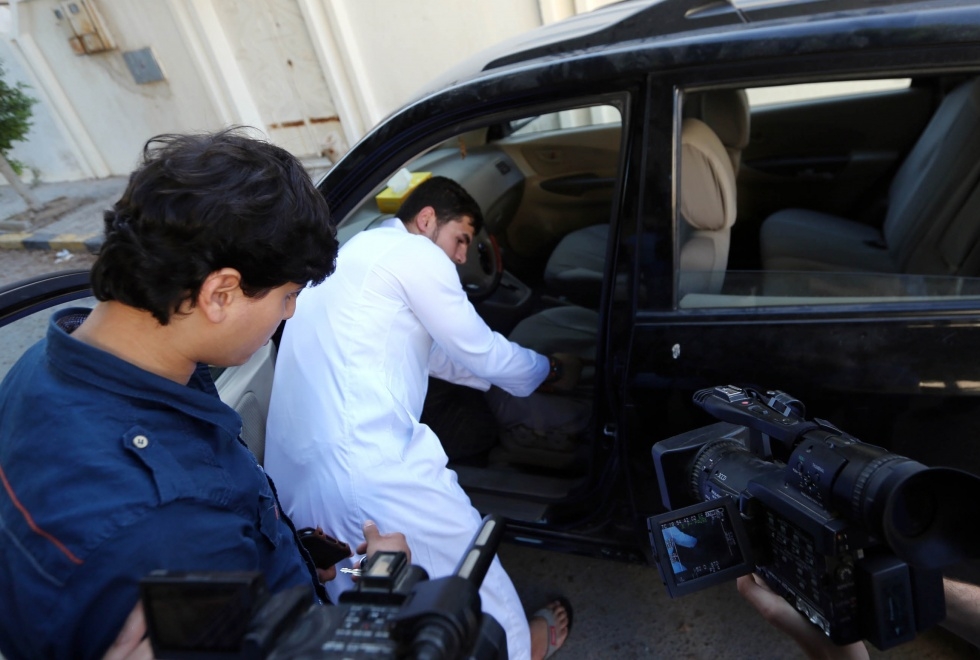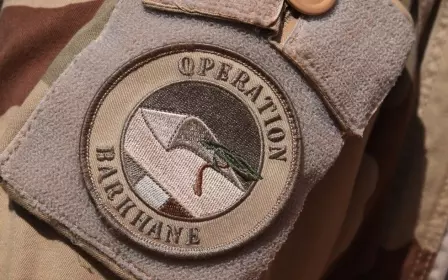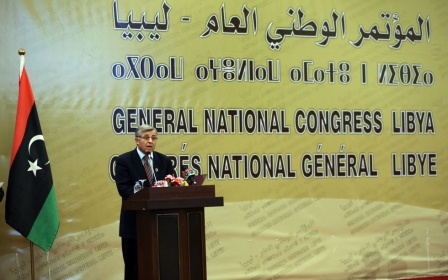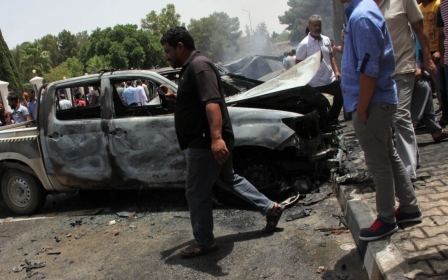Libyan Al-Qaeda suspect dies in US days before trial

A Libyan accused over the 1998 Al-Qaeda bombings of US embassies in Africa died on Friday, days before he was due to stand trial in New York.
Abu Anas al-Libi, 50, was on the FBI's most-wanted list with a $5 million price on his head when he was captured by US troops in the Libyan capital Tripoli in October 2013.
He and Saudi businessman Khalid al-Fawwaz were due to stand trial on 12 January over attacks on the US embassies in Kenya and Tanzania that killed 224 people and wounded around 5,000.
Libi, a computer expert whose real name was Nazih al-Ruqaii, died at a New York hospital on Friday, the federal prosecutor for the region said in a letter to the judge trying the case.
"On December 31, 2014, Abu Anas al-Libi was taken from the Metropolitan Correctional Center to a New York hospital due to sudden complications arising out of his long-standing medical problems," said Preet Bharara in the letter Saturday.
"We write now to inform the Court that despite the care provided at the hospital, his condition deteriorated rapidly, and Libi passed away yesterday evening."
"We understand that, in addition to his counsel, an imam was with [al Libi] at the hospital and that appropriate arrangements are being made with his family," the letter said.
Libi's lawyer Bernard Kleinman had told The Washington Post that the health of his client - who had advanced hepatitis C and liver cancer - had deteriorated significantly in the last month.
Libi and Fawwaz both previously pleaded not guilty to conspiracy charges.
A third suspect, Egyptian Adel Abdel Bary, last year pleaded guilty to playing a role in the 1998 attacks.
Libi's son Abdel Mouin told CNN by telephone from Tripoli early Saturday that his father had been in a coma before his death and that the family holds the US government "fully responsible" for his demise.
Mouin also said that numerous requests from the family to visit Libi, whom they call Ruqaii, had been denied.
Libi was detained by US commandos on 5 October 2013, and interrogated on board a US warship before being handed over to FBI agents on 12 October and flown to New York.
Hunger Strike
Libi was questioned by the agents on board the flight, initially waiving his right to a lawyer, during which he is said to have made an incriminating statement.
But Libi had sought to supress the statement in court, saying he was on hunger strike at the time, raising questions about the extent to which he was competent when he waived his rights.
Investigators told the court Libi had informed them of his hunger strike during the flight, but that he had been hooked up to an IV and was under medical supervision.
He was responsive, understood his rights, knowingly waived them and spoke willingly, and at no point appeared confused, investigator George Corey said.
In an indictment, prosecutors accused Libi of discussing in 1993 possible attacks against the US embassy in Nairobi, and of carrying out surveillance of the diplomatic mission.
During or around 1994, the indictment said, he received files concerning possible attacks against the embassy, the US Agency for International Development, and British, French and Israeli targets in Nairobi.
However, defense lawyer Kleinman says Libi was innocent and had cut his ties with Al-Qaeda before the 1998 attacks.
The United States faced criticism after the dramatic raid in which Libi was captured, with Libya denouncing it as a kidnapping and rights groups accusing Washingon of violating his fundamental human rights.
Middle East Eye propose une couverture et une analyse indépendantes et incomparables du Moyen-Orient, de l’Afrique du Nord et d’autres régions du monde. Pour en savoir plus sur la reprise de ce contenu et les frais qui s’appliquent, veuillez remplir ce formulaire [en anglais]. Pour en savoir plus sur MEE, cliquez ici [en anglais].




